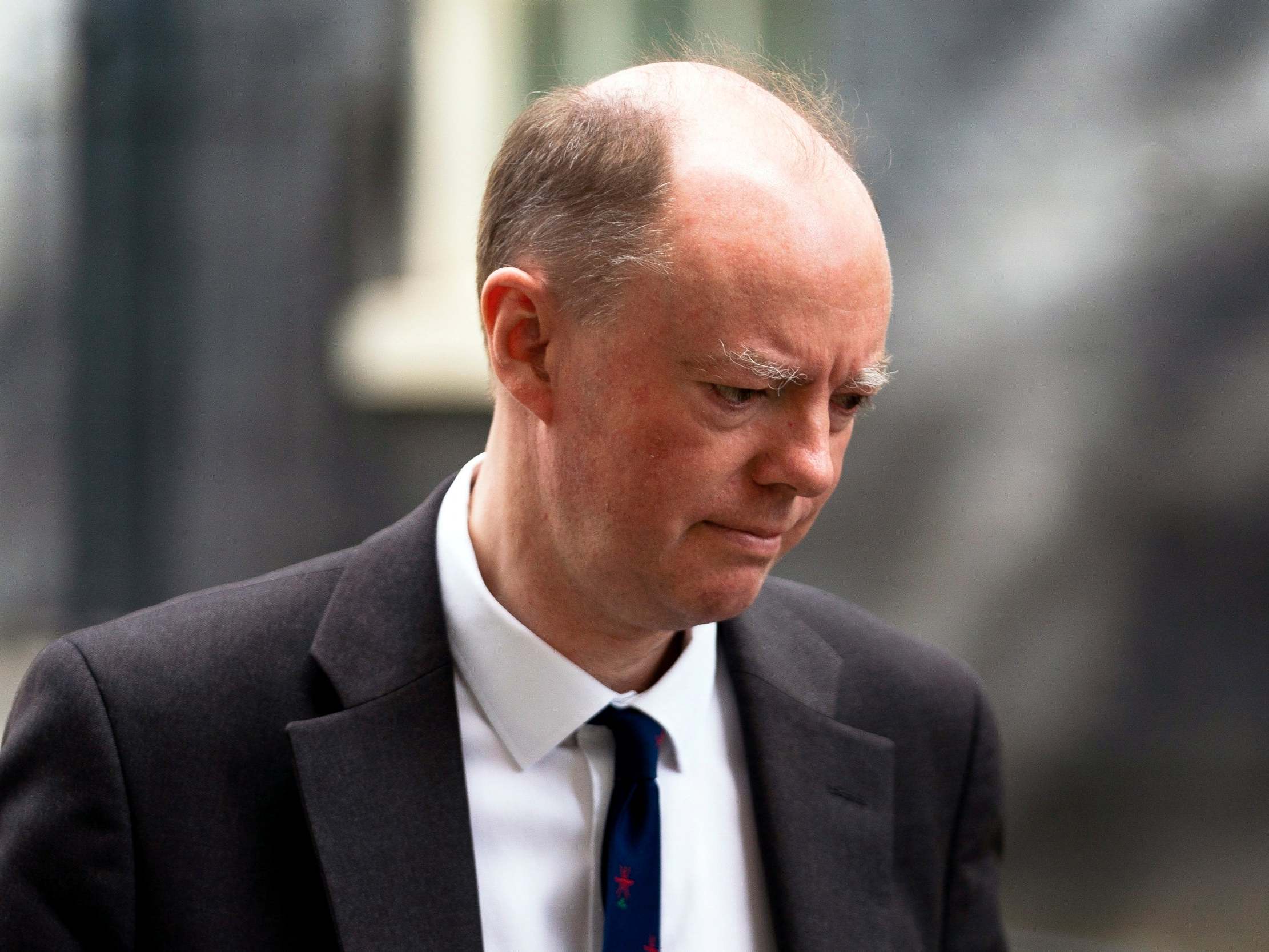
Chief medical officer Chris Whitty made the decision not to lower the coronavirus alert level last week, Downing Street has confirmed.
A cut from Level 4 – meaning transmission is “high or rising exponentially” – to 3, where the virus is “in general circulation”, had been widely expected after Boris Johnson signalled his plan to relax lockdown restrictions in England at the start of this week.
But in the event, ministers were able to say only that the pandemic in the UK was at Level 4, but “transitioning towards Level 3”.
Download the new Independent Premium app
Sharing the full story, not just the headlines
The announcement raised questions over whether Mr Johnson was moving too swiftly to allow the return of primary school pupils and the reopening of non-essential stores.
And the confirmation of Prof Whitty’s crucial role will bolster claims that scientific and medical advisers are having to rein in a political drive to accelerate the return to normal life.
The government’s coronavirus recovery plan, released on 11 May, stated that any changes to lockdown restrictions “must be warranted by the current alert level”.
The document also said that a new independent Joint Biosecurity Centre would have the job of setting the alert level and advising the chief medical officers of England, Scotland, Wales and Northern Ireland, who in turn would advise ministers.
But health secretary Matt Hancock sparked confusion on Monday by saying the JBC was not yet in operation, telling the daily Downing Street briefing that it “still formally needs to come into existence” and was “being formulated at the moment”.
On Tuesday, Mr Johnson’s official spokesman insisted that the Centre was in operation, but said it did not have the final say on the alert level, which was determined by the CMOs, including Prof Whitty.
He said that the judgement on whether lockdown rules can be relaxed was primarily dependent on the UK meeting five tests set down by ministers covering adequate NHS capacity, a “sustained and consistent” fall in Covid cases, a decrease in infection levels, adquate supplies of tests and protective equipment and confidence that it does not risk a second peak.
The latest news on Brexit, politics and beyond direct to your inbox
The spokesman said the JBC is “reporting to a director-general based in the Department for Health and Social Care. It has a data and analysis team which is analysing the data on coronavirus to inform the alert level and the testing regime”.
But he added: “In terms of the setting of the alert level, it is ultimately for the chief medical officers who are informed by the data which has been collected, collated and analysed by JBC.”
Asked whether this meant Whitty had decided the level must remain at 4, the spokesman said: “There are the four chief medical officers, but Chris Whitty is the chief medical officer for England.”
Challenged over whether the relaxation of lockdown rules in effect took place against Whitty’s judgment, the spokesman said: “I don’t accept that. With the decisions in terms of the easements we made yesterday, I’ll stress again how cautious they were, and how we’re moving forwards at a very gradual rate. Secondly, they were based upon us meeting the five tests, and that is what we are currently doing.”



